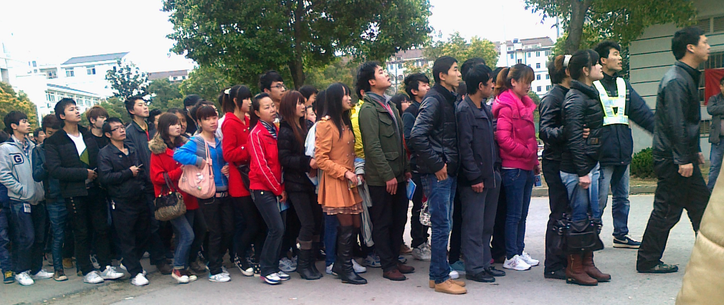L’emploi précaire
Dans l’industrie électronique, les commandes urgentes, le transfert des risques aux sous-traitants et les mécanismes de réduction des coûts font partie d’un modèle industriel économique qui impacte profondément les conditions de travail dans les usines. De ce modèle résultent des modalités de travail flexibles et précaires comme l’emploi temporaire, à temps partiel et contractuel, ainsi que des heures de travail irrégulières, une absence de sécurité sociale et de l’emploi, des risques sanitaires et sécuritaires croissants.
Ces modalités de travail peuvent être dommageables aux ouvrier.e.s et sont parfois illégales. A cause des demandes de production flexibles et des cycles de vie des produits de seulement 3 à 18 mois, l’emploi précaire est endémique. Selon l’OIT, environ 80 à 90% du personnel est constitué d’ouvrier.e.s contractuels temporaires dans certaines régions de Chine, de Malaisie, de Hongrie et du Mexique pendant les période de pointe de production.
Lisez le récit d’ouvrier.e.s:
«L’insécurité du travail chez un sous-traitant d’Europe Centrale»


